Are you ready to embark on the journey of submitting your research proposal to the Institutional Review Board (IRB)? Navigating the complex requirements and guidelines can feel daunting, but it doesn't have to be! In this article, we'll break down the essential components of a well-crafted IRB submission letter, ensuring that you present your project clearly and effectively. Stay tuned to discover the key tips and templates that will simplify your IRB submission process!

Project Title and Objectives
The project titled "Impact of Urban Green Spaces on Mental Health in City Dwellers" aims to investigate the correlation between access to green spaces, such as parks and community gardens, and the mental well-being of urban residents in New York City. Researchers will analyze survey data collected from over 500 participants in various neighborhoods, focusing on demographics, frequency of green space usage, and reported mental health conditions, utilizing standardized assessment tools like the Generalized Anxiety Disorder 7-item (GAD-7) scale. The objective is to provide evidence-based recommendations to city planners for enhancing public health initiatives and urban development strategies by optimizing green space accessibility.
Research Methodology
In an institutional review board (IRB) submission, research methodology outlines the systematic approach for conducting the study. This involves identifying the research design, such as qualitative, quantitative, or mixed methods, which will guide data collection and analysis. Key elements include participant selection criteria, detailing eligibility such as age range (18-65 years), gender, and specific health conditions (e.g., diabetes). The sampling method, whether random, stratified, or convenience, is crucial for ensuring representative results. Data collection techniques, such as surveys, interviews, or observational methods, should be specified with associated tools or instruments (like validated questionnaires) and targeted timelines (e.g., 6-month recruitment period). Ethical considerations surrounding informed consent procedures, participant confidentiality, and data security protocols must be emphasized, ensuring compliance with the guidelines set forth by the Belmont Report and related federal regulations. Finally, the methodology section should outline the statistical or thematic analysis approaches, detailing software (like SPSS or NVivo) that will assist in interpreting results to support the research hypothesis effectively.
Ethical Considerations
Ethical considerations in research involving human subjects are paramount to ensure the welfare and rights of participants. In studies conducted at institutions like the University of California, Los Angeles (UCLA), adherence to guidelines set forth by the Institutional Review Board (IRB) is essential for ethical compliance. Informed consents must be obtained, detailing participation voluntariness, potential risks, and benefits. Additionally, data privacy and confidentiality must be maintained, utilizing de-identification techniques to protect participant identities. Vulnerable populations, such as minors or economically disadvantaged groups, require extra protections to safeguard their interests. Continuous monitoring and reporting of adverse events are also crucial for maintaining ethical standards throughout the study duration.
Participant Recruitment and Consent
Participant recruitment strategies are crucial for ensuring the success of clinical research studies. Methods such as online advertisements, social media platforms, community outreach programs, and physician referrals are often employed to reach diverse demographic groups. Ethical considerations surrounding informed consent involve providing potential participants with comprehensive information about study objectives, procedures, potential risks, and benefits. It is essential to adhere to guidelines set forth by the Institutional Review Board (IRB) to ensure respect for participant autonomy and protection of rights. Utilizing tools such as consent forms, informational brochures, and verbal explanations can aid in the recruitment process, thereby increasing participant understanding and willingness to engage in research. Engaging local communities, institutions, and healthcare providers also plays a pivotal role in effective recruitment practices.
Data Privacy and Security Practices
Institutional Review Board (IRB) submissions require a comprehensive outline of data privacy and security practices to ensure ethical treatment of sensitive participant information. Effective data privacy involves safeguarding personally identifiable information (PII), ensuring compliance with regulations such as the Health Insurance Portability and Accountability Act (HIPAA) in healthcare research or the General Data Protection Regulation (GDPR) in studies involving European participants. Security measures might include encryption protocols for data storage, access controls that restrict data access to authorized personnel only, and regular security audits to identify vulnerabilities. Additionally, employing secure data transmission methods, such as Virtual Private Networks (VPNs) or Secure Socket Layer (SSL), contributes to maintaining confidentiality. Ethical violation consequences and mitigation strategies also play a critical role in the submission process, highlighting the research institution's commitment to participants' rights and well-being.
Letter Template For Institutional Review Board Submission Samples
Letter template of research proposal for institutional review board submission
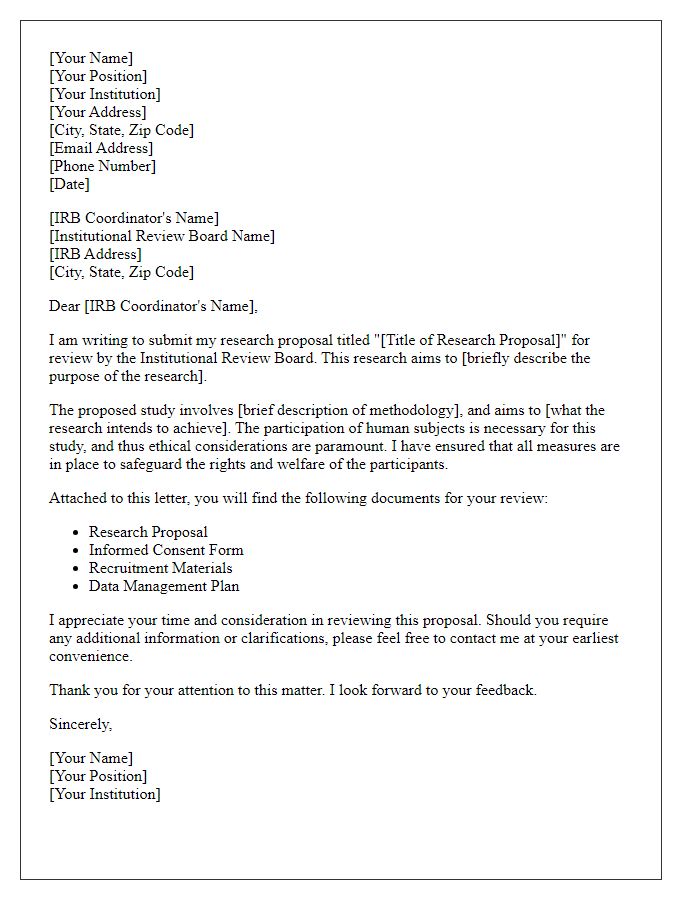
Letter template of informed consent request for institutional review board submission
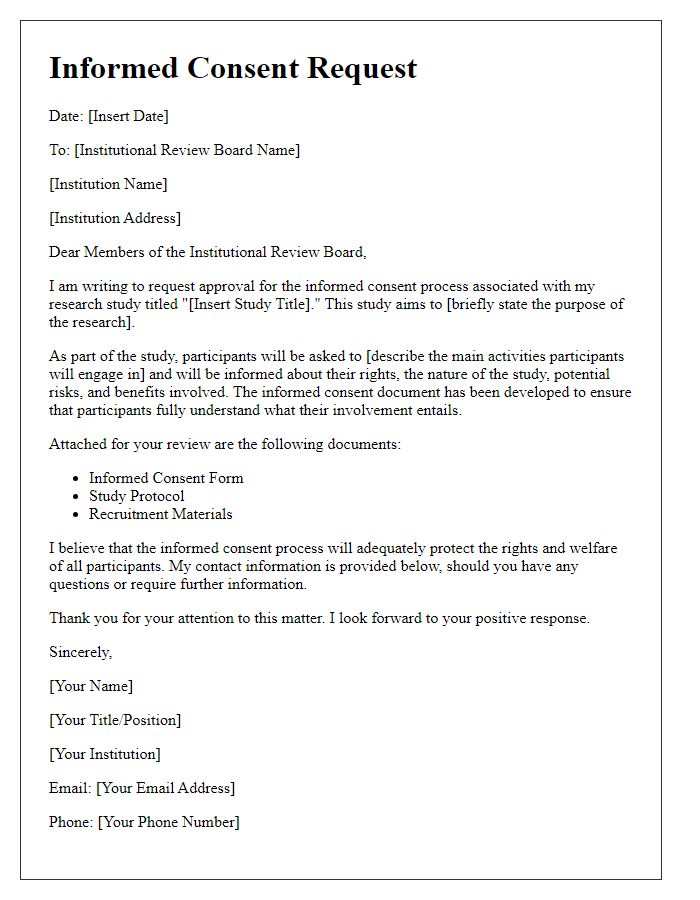
Letter template of ethics approval request for institutional review board submission
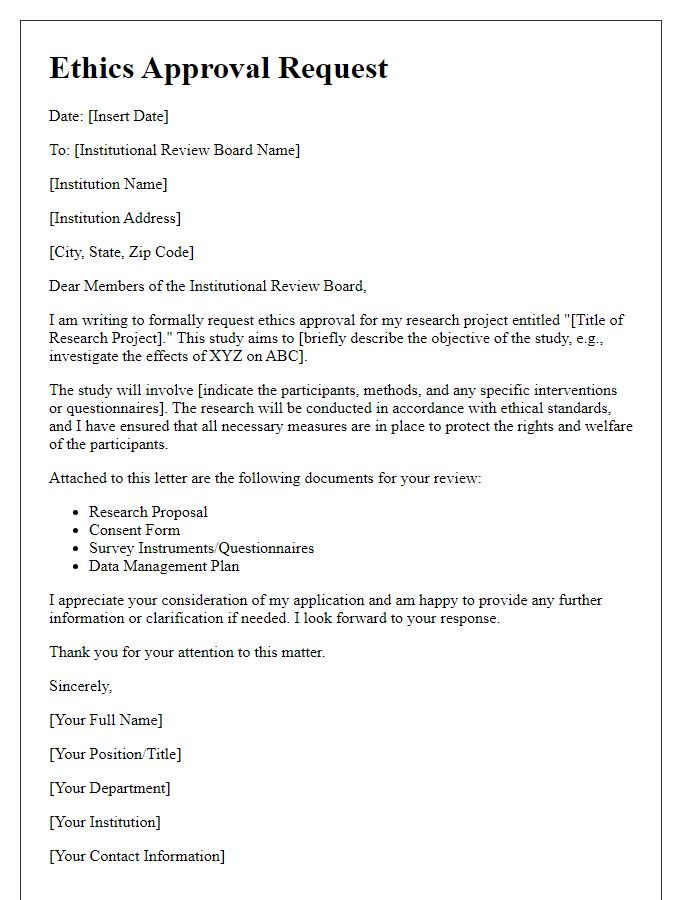
Letter template of study protocol submission for institutional review board
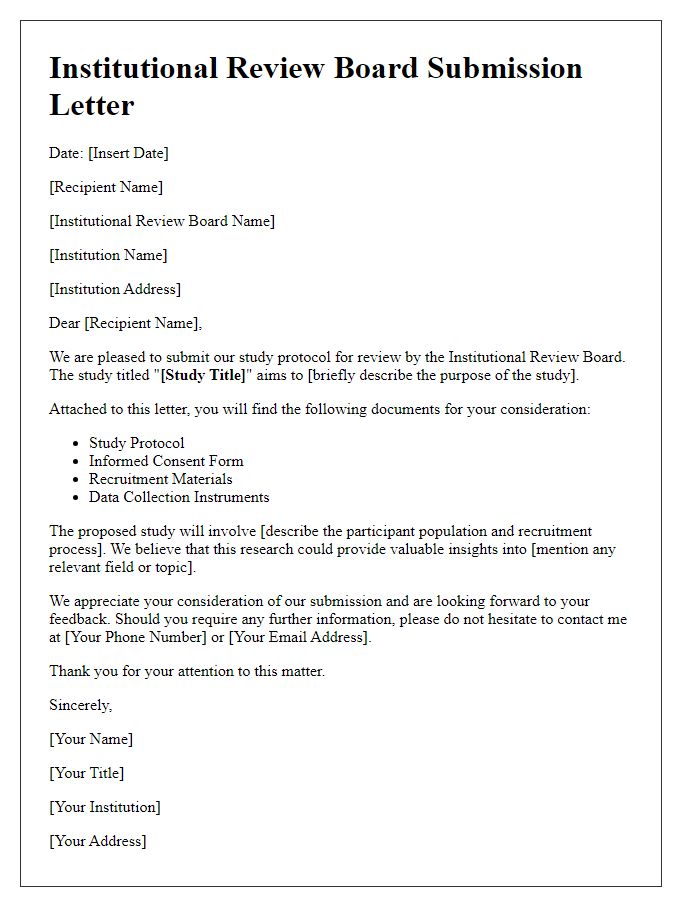
Letter template of participant recruitment plan for institutional review board submission
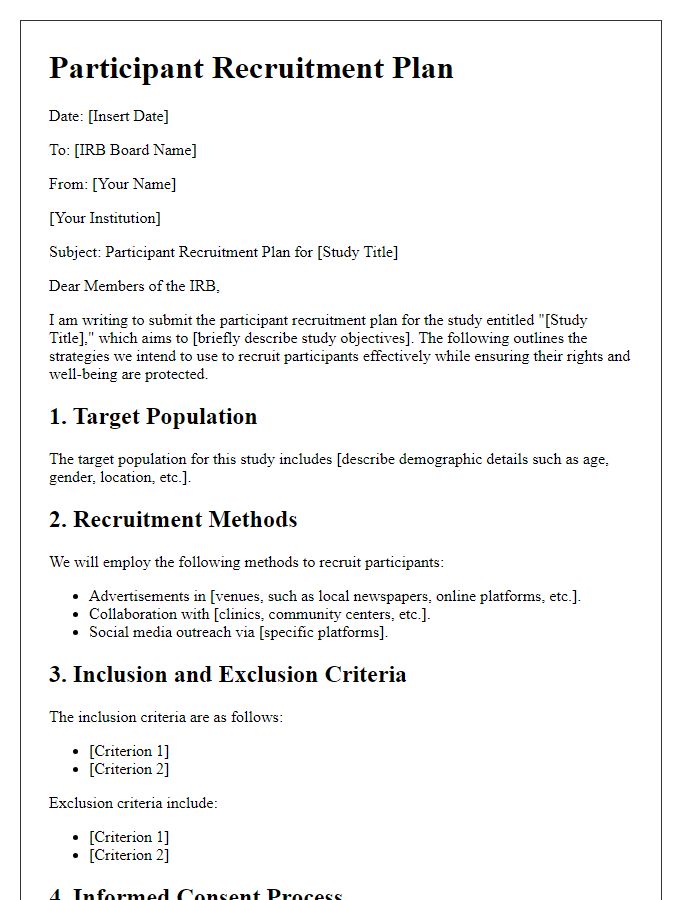
Letter template of risk assessment for institutional review board approval
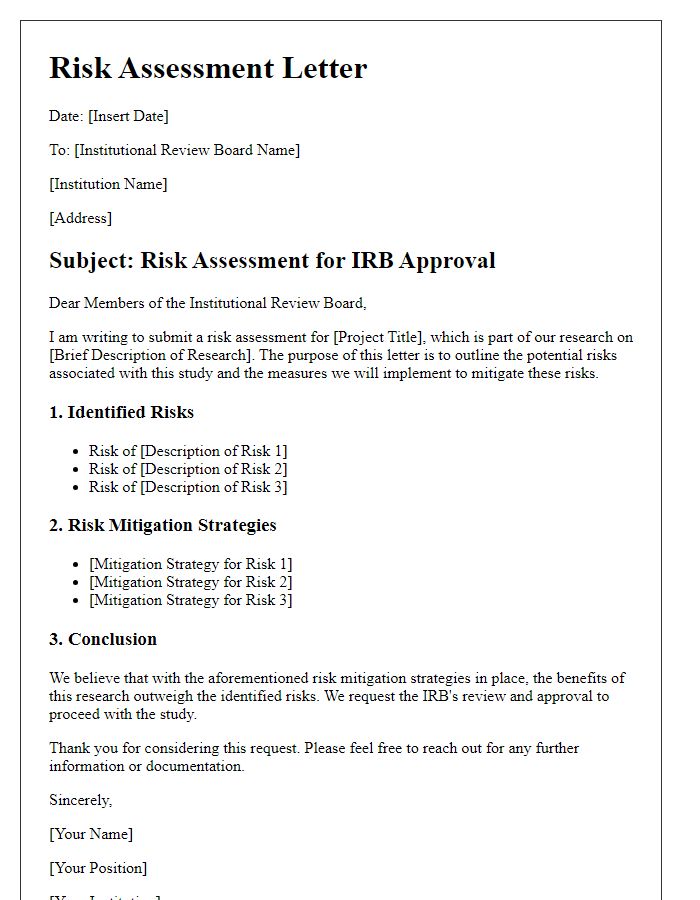
Letter template of amendment request for institutional review board submission
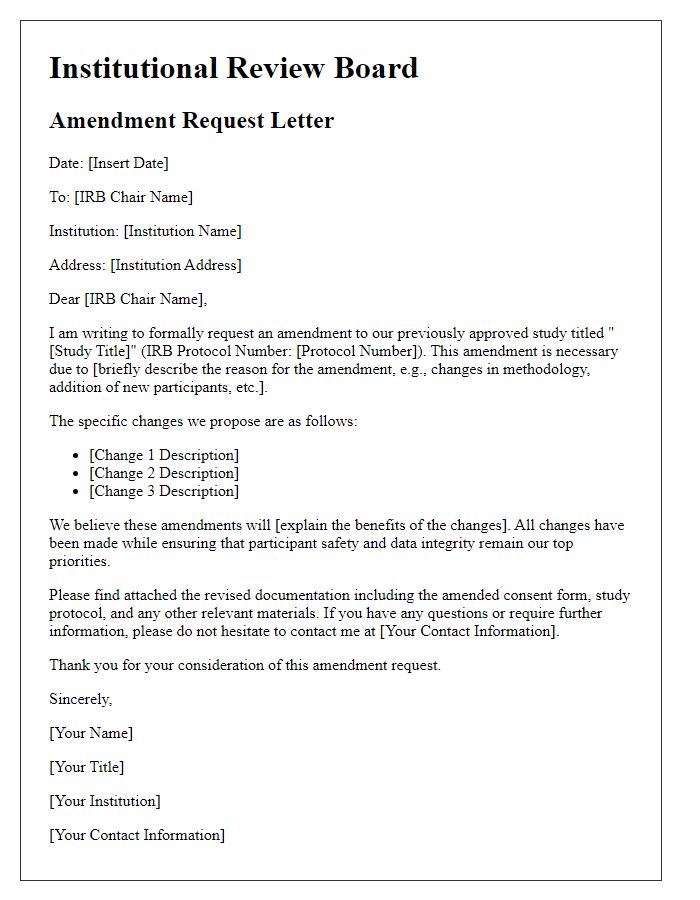
Letter template of final report submission for institutional review board
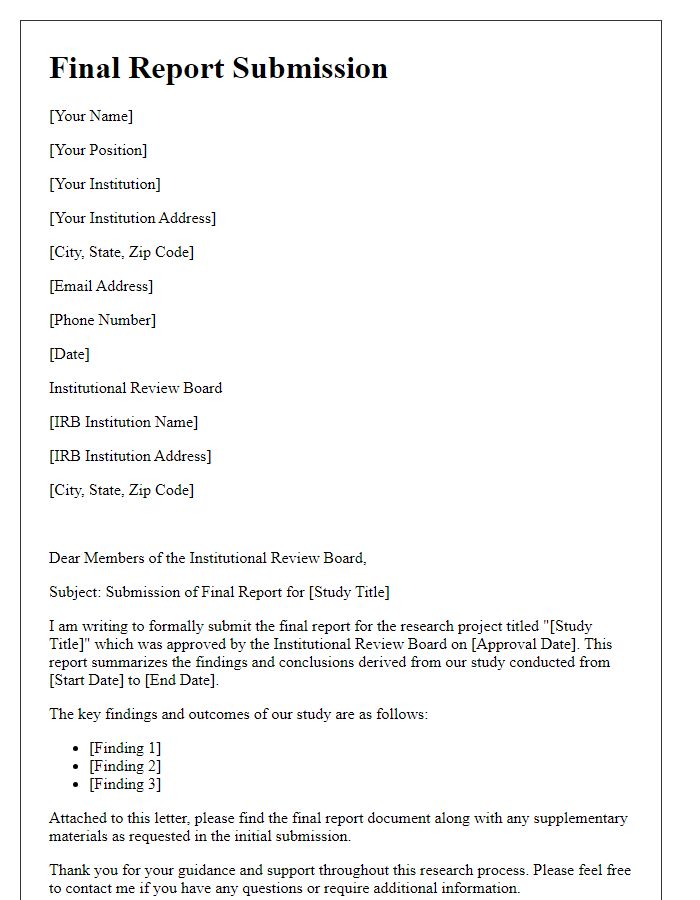
Letter template of adverse event notification for institutional review board
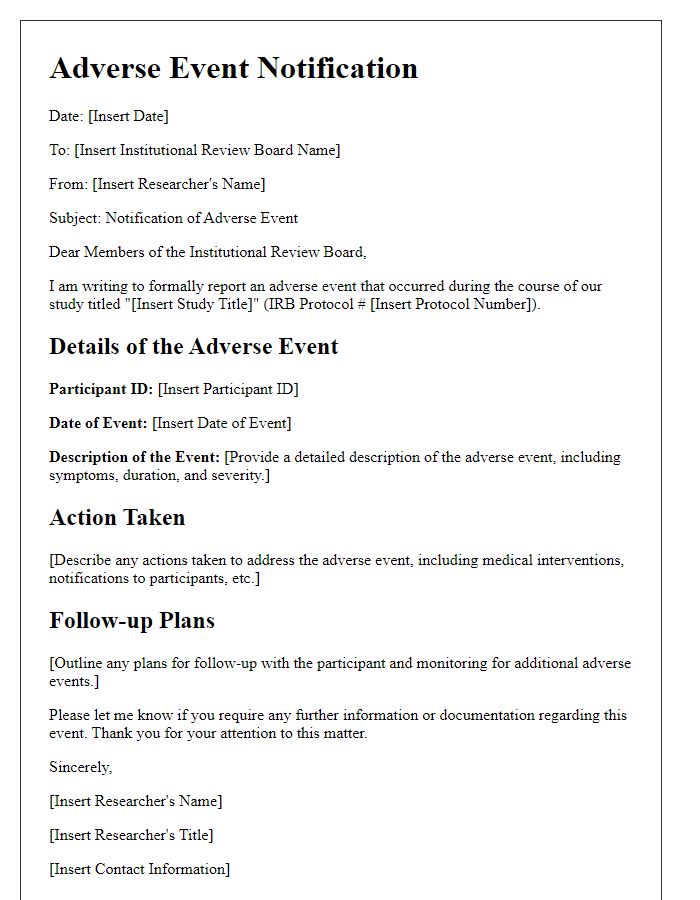

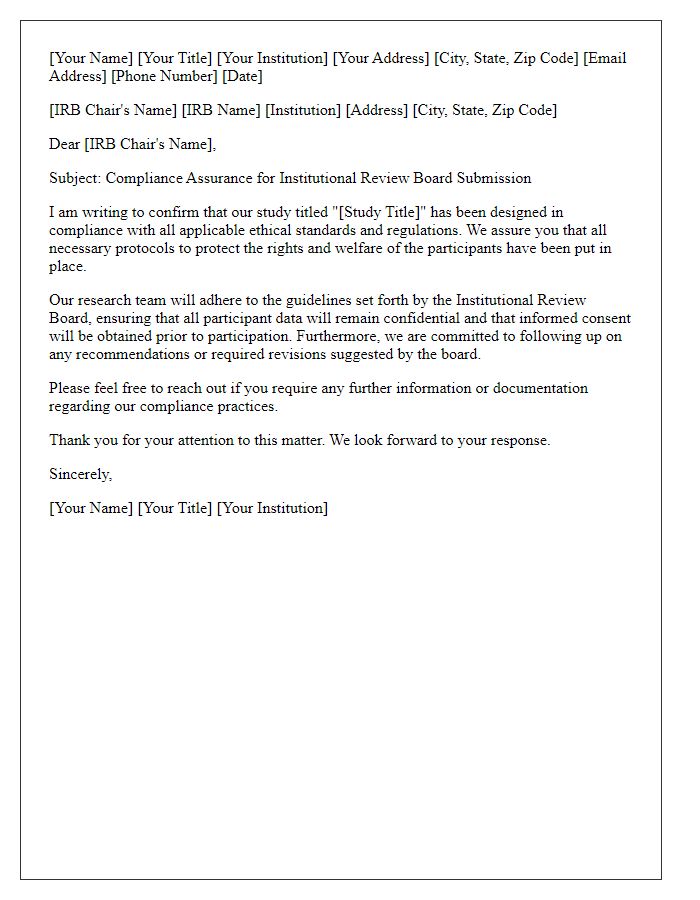


Comments